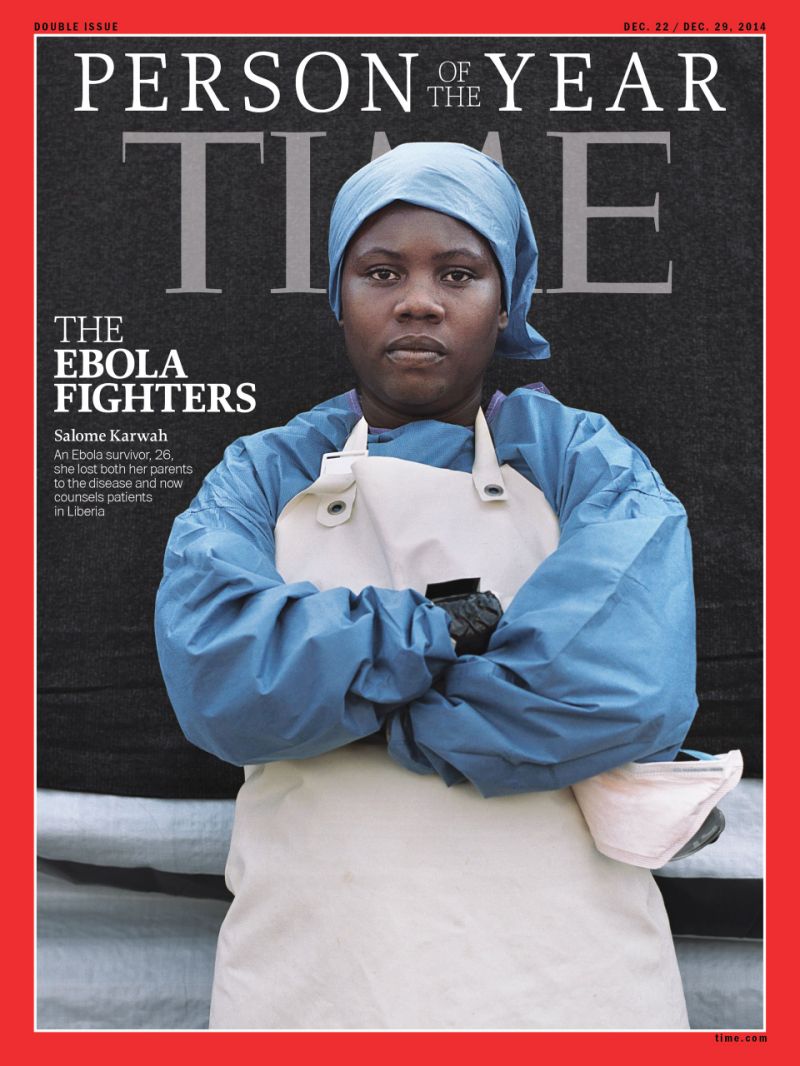Salome Karwah, who represented the Time Person of the Year two years ago after fighting the Ebola outbreak in Liberia, seemed invincible.
The plague killed her mother, her father, her brother, aunts, uncles, cousins and a niece, Time reports. It didn’t get her.
Childbirth and stigma did.
On Feb. 17 she delivered a healthy boy, Solomon, by cesarian section. She was sent home three days later.
Within hours of coming home, Karwah lapsed into convulsions. Her husband and her sister rushed her back to the hospital, but no one would touch her. Her foaming mouth and violent seizures panicked the staff. “They said she was an Ebola survivor,” says her sister by telephone. “They didn’t want contact with her fluids. They all gave her distance. No one would give her an injection.”
Karwah died the next day. “My heart is broken,” says Manley. “Salome loves her children, her James. The one-year-old, the newborn, they will grow up never remembering their mother’s face.”
Manley doesn’t know what caused the convulsions, but believes that something went wrong in the surgery. Still, she says, if her sister had been treated immediately, she might have had a chance. Instead, “she was stigmatized.”
“[The doctor] was checking Facebook,” Karwha’s husband said. “I had to rush into the emergency room myself to get a wheelchair, but I was struggling to take her from the car to put her in it. Other nurses came to help me, but the doctor told me that she would not touch her, and that if [Salome] stayed [at the hospital] she would die.”
After beating Ebola, she had hoped to open a “super clinic” to provide health care to people whom other health care workers wouldn’t touch.
Related: A Husband Loses His ‘Best Friend’ — Salome Karwah, Ebola Hero (NPR)

